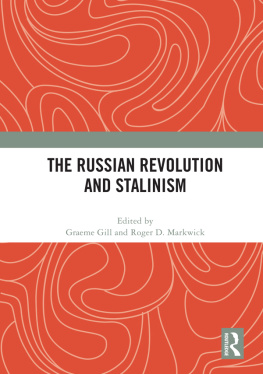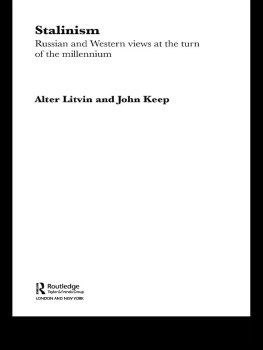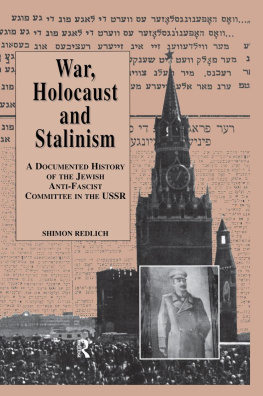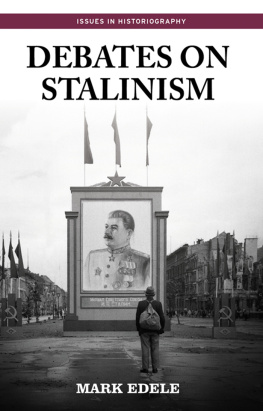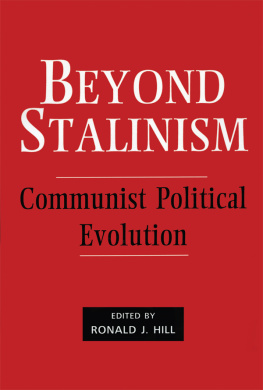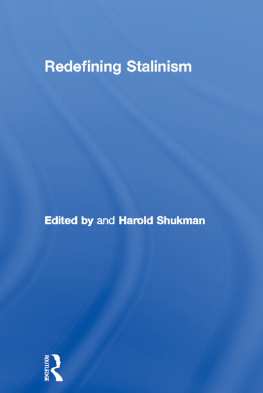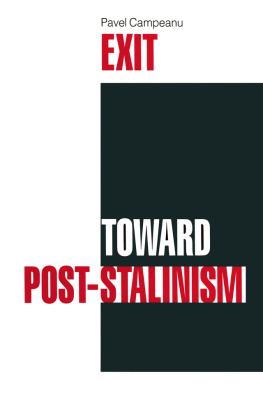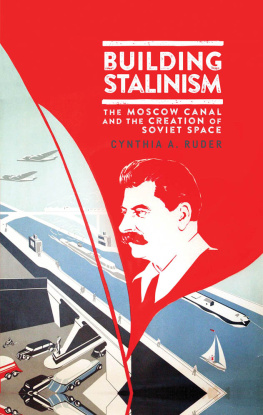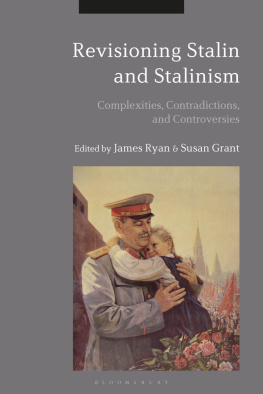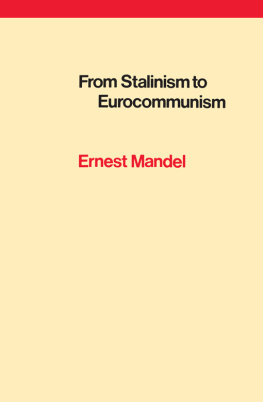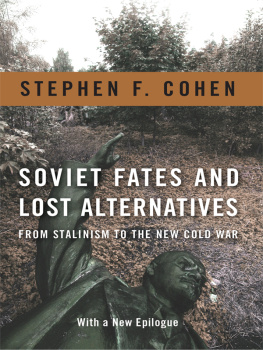The Russian Revolution and Stalinism
This book focuses upon significant aspects of Stalinism as a system in the USSR. It sheds new light on established questions and addresses issues that have never before been raised in the study of Stalinism.
Stalinism constitutes one of the most striking and contentious phenomena of the twentieth century. It not only transformed the Soviet Union into a major military-industrial power, but through both the Second World War and the ensuing Cold War, and its effect on the political Left throughout much of the world, it also transformed much of that world. This collection of papers by an international cast of authors investigates a variety of major aspects of Stalinism. Significant new questions like the role of private enterprise and violence in state-making as well as some of the more established questions like the number of Soviet citizens who died in the Second World War, whether agricultural collectivisation was genocidal, nationality policy, the politics of executive power, and the Leningrad affair are addressed here in innovative and stimulating ways.
The chapters in this book were originally published as a special issue of Europe-Asia Studies.
Graeme Gill is Professor Emeritus in the Department of Government and International Relations at the University of Sydney, Australia. A long-time scholar of Soviet and Russian politics, his latest book on this is entitled Collective Leadership in Soviet Politics (2018). He is a fellow of the Academy of Social Sciences in Australia.
Roger D. Markwick is Conjoint Professor of Modern European History at the University of Newcastle, Australia. With particular expertise in Soviet historiography and the role of Soviet women in the Second World War, his latest book is Everyday War: Exploring the Soviet Home Front, 194145, co-edited, in Russian (2019).
The Russian Revolution and Stalinism
Edited by
Graeme Gill and Roger D. Markwick
First published 2021
by Routledge
2 Park Square, Milton Park, Abingdon, Oxon OX14 4RN
and by Routledge
52 Vanderbilt Avenue, New York, NY 10017
Routledge is an imprint of the Taylor & Francis Group, an informa business
Introduction, Chapters 18 2021 University of Glasgow
Chapter 9 2019 Sergei Nefedov and Michael Ellman. Originally published as Open Access.
With the exception of Chapter 9, no part of this book may be reprinted or reproduced or utilised in any form or by any electronic, mechanical, or other means, now known or hereafter invented, including photocopying and recording, or in any information storage or retrieval system, without permission in writing from the publishers. For details on the rights for Chapter 9, please see the chapters Open Access footnote.
Trademark notice: Product or corporate names may be trademarks or registered trademarks, and are used only for identification and explanation without intent to infringe.
British Library Cataloguing in Publication Data
A catalogue record for this book is available from the British Library
ISBN: 978-0-367-74469-4 (hbk)
ISBN: 978-0-367-74471-7 (pbk)
ISBN: 978-1-003-15805-9 (ebk)
Typeset in Baskerville BT
by Newgen Publishing UK
Publishers Note
The publisher accepts responsibility for any inconsistencies that may have arisen during the conversion of this book from journal articles to book chapters, namely the inclusion of journal terminology.
Disclaimer
Every effort has been made to contact copyright holders for their permission to reprint material in this book. The publishers would be grateful to hear from any copyright holder who is not here acknowledged and will undertake to rectify any errors or omissions in future editions of this book.
Contents
Graeme GillandRoger D. Markwick
Oleg Khlevniuk
Roger D. Markwick
Roderic Pitty
David Brandenberger, Alisa AmosovaandNikita Pivovarov
Jeremy Smith
Graeme Gill
Stephen G. Wheatcroft
Mark Harrison
Sergei NefedovandMichael Ellman
The chapters in this book were originally published in Europe-Asia Studies, volume 71, issue 6 (July 2019). When citing this material, please use the original page numbering for each article, as follows:
Introduction: Stalinism as State Building
Graeme Gill and Roger D. Markwick
Europe-Asia Studies, volume 71, issue 6 (July 2019), pp. 883891
The Pavlenko Construction Enterprise. Large-scale Private Entrepreneurialism in Stalins USSR
Oleg Khlevniuk
Europe-Asia Studies, volume 71, issue 6 (July 2019), pp. 892906
War, Violence and the Making of the Stalinist State: A Tillyian Analysis
Roger D. Markwick
Europe-Asia Studies, volume 71, issue 6 (July 2019), pp. 907931
Russian Views of Stalinism as a Negative Satellite of Capitalism
Roderic Pitty
Europe-Asia Studies, volume 71, issue 6 (July 2019), pp. 932950
The Rise and Fall of a Crimean Party Boss: Nikolai Vasilevich Solovev and the Leningrad Affair
David Brandenberger, Alisa Amosova and Nikita Pivovarov
Europe-Asia Studies, volume 71, issue 6 (July 2019), pp. 951971
Was There a Soviet Nationality Policy?
Jeremy Smith
Europe-Asia Studies, volume 71, issue 6 (July 2019), pp. 972993
Stalinism and Executive Power: Formal and Informal Contours of Stalinism
Graeme Gill
Europe-Asia Studies, volume 71, issue 6 (July 2019), pp. 9941012
Soviet Statistics under Stalinism: Reliability and Distortions in Grain and Population Statistics
Stephen G. Wheatcroft
Europe-Asia Studies, volume 71, issue 6 (July 2019), pp. 10131035
Counting the Soviet Unions War Dead: Still 2627 Million
Mark Harrison
Europe-Asia Studies, volume 71, issue 6 (July 2019), pp. 10361047
The Soviet Famine of 19311934: Genocide, a Result of Poor Harvests, or the Outcome of a Conflict Between the State and the Peasants?
Sergei Nefedov and Michael Ellman
Europe-Asia Studies, volume 71, issue 6 (July 2019), pp. 10481065
For any permission-related enquiries please visit: www.tandfonline.com/page/help/permissions
Alisa Amosova is Assistant Professor at St Petersburg State University (Institute of History), Russian Federation. She specialises in the study of Soviet elites, the Leningrad Affair, supply issues during the Leningrad Blockade (19411944), local government in Leningrad and the Leningrad region between 1930 and 1950, and Soviet museum culture.

